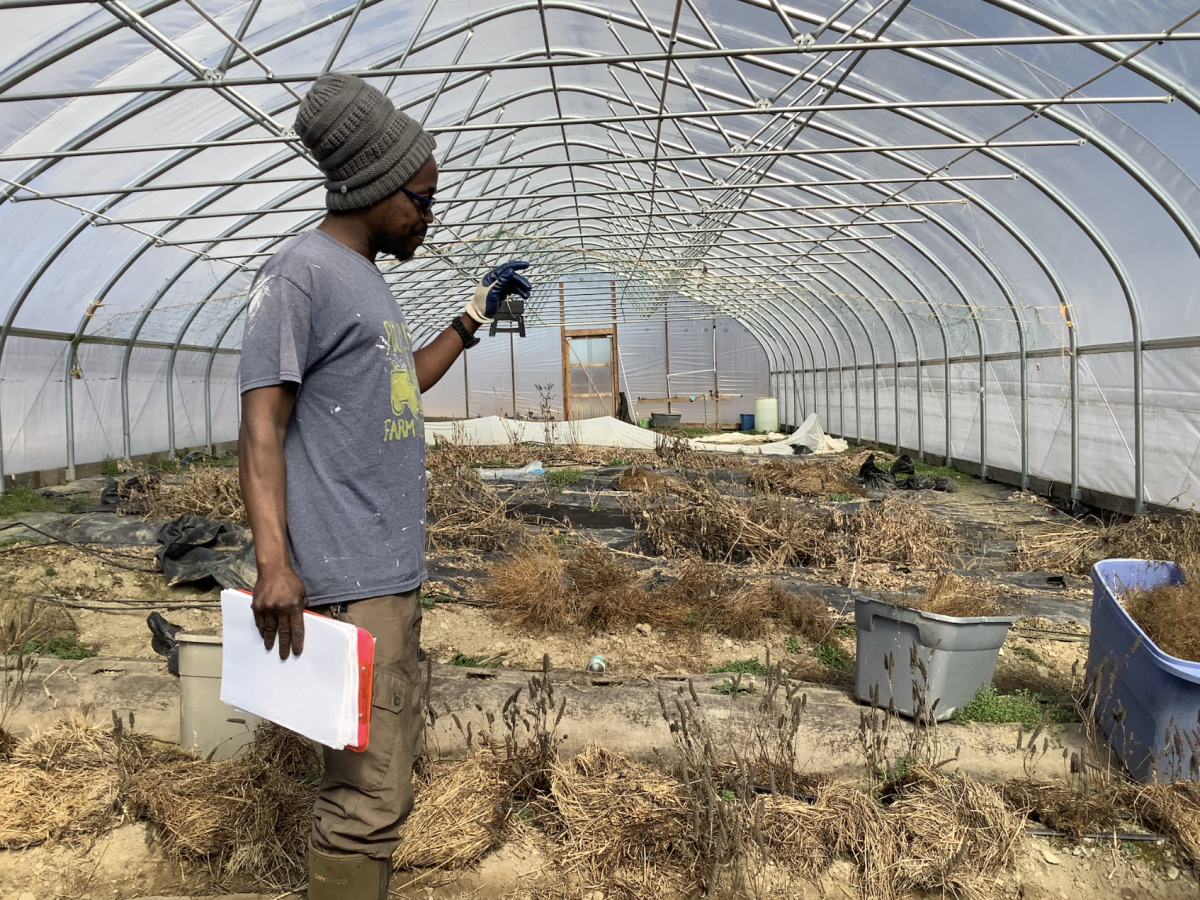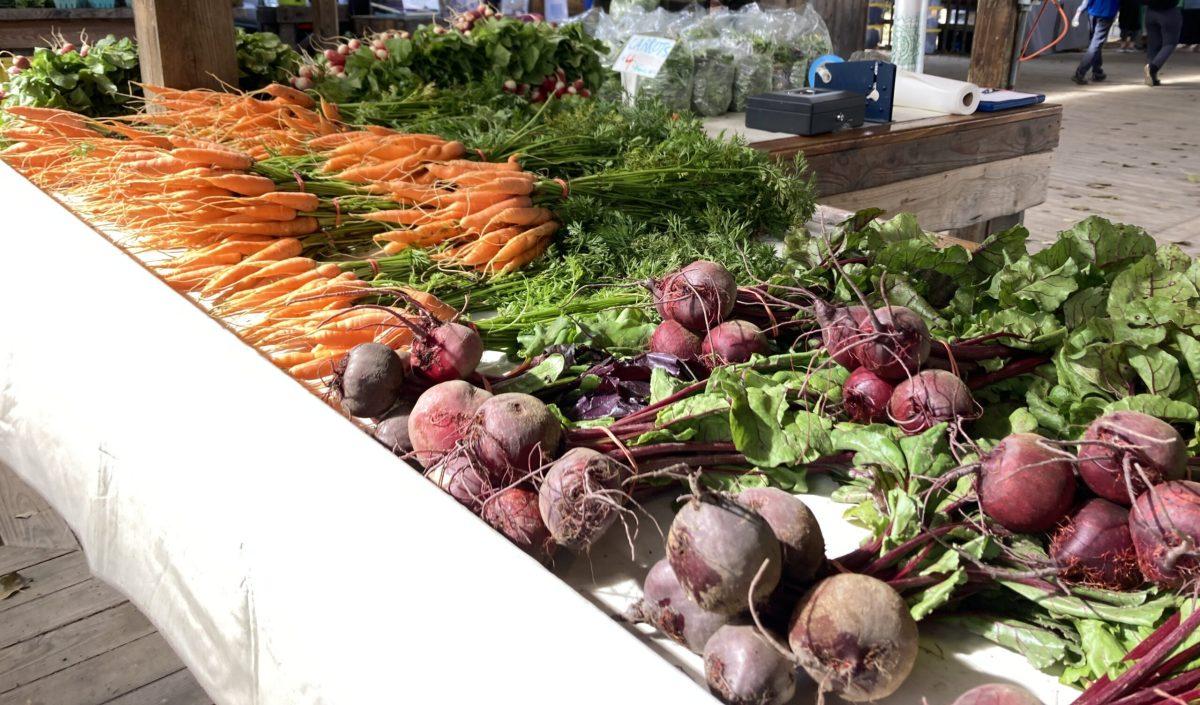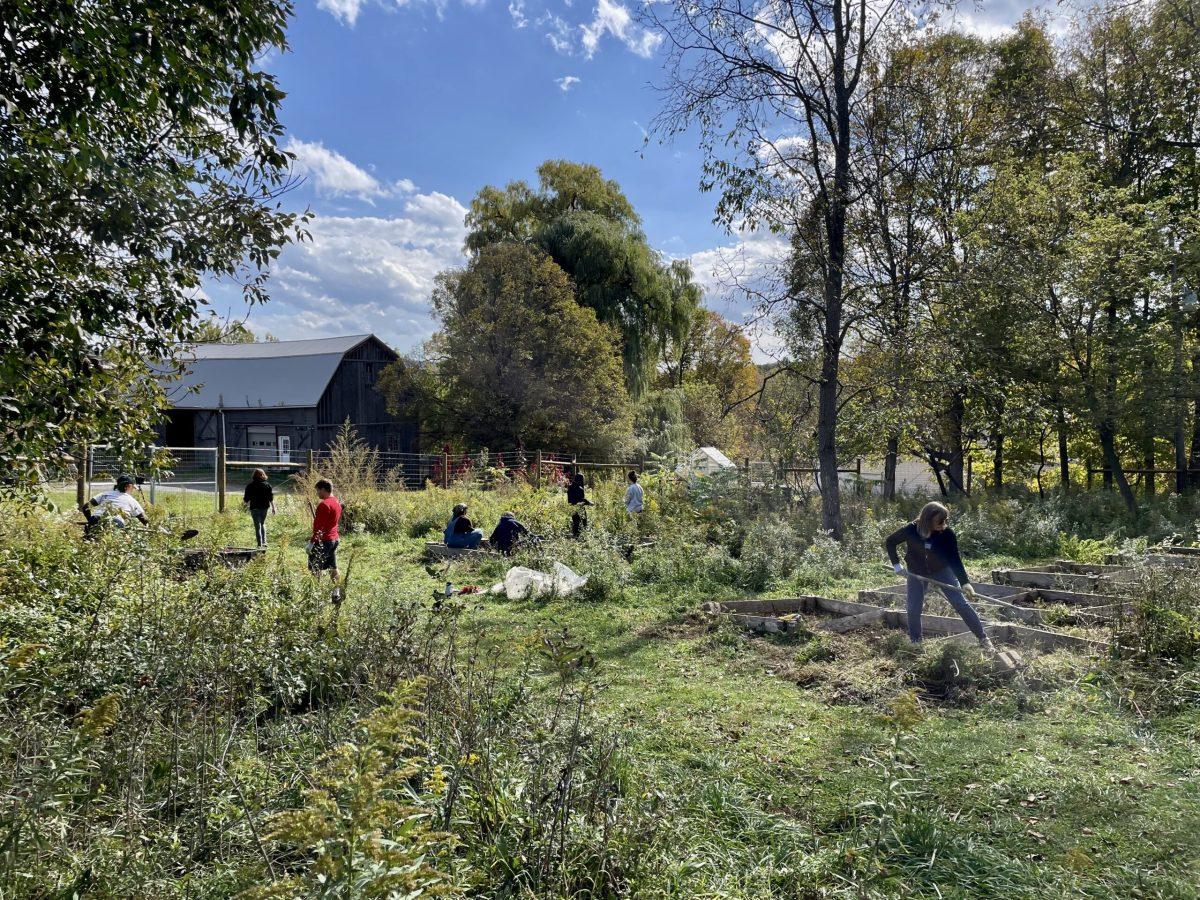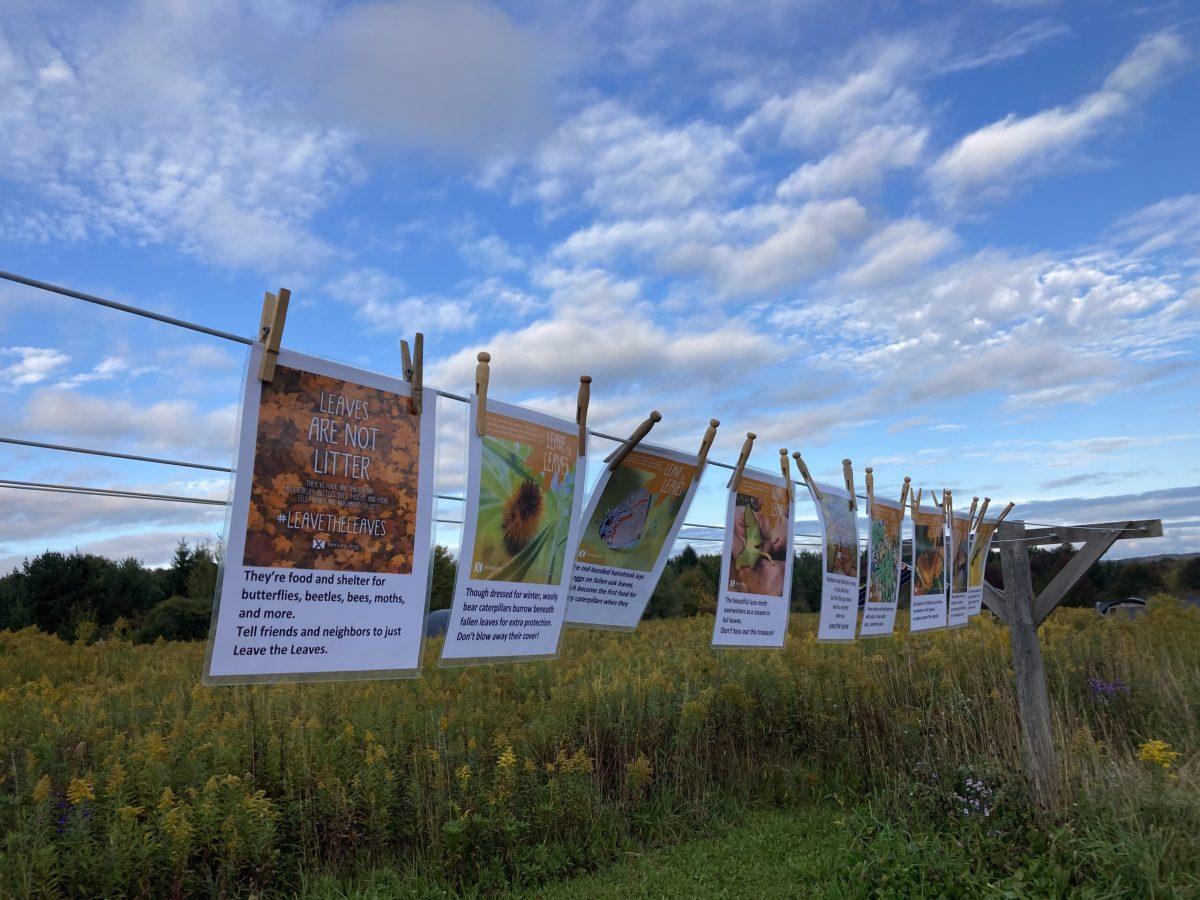Adam Michaelides, a compost educator for CCE Tompkins, takes a trowel and pushes away layers of damp, shredded newspaper near the top of the bin. In the dim light of the kitchen, it’s hard to see what’s so remarkable about this box. But there, below the newspaper shreds and a few orange peels, are the stars of the show — lots and lots of red worms.
“You can see the worms down there, just doing their thing,” Michaelides says as he pushes compost and cast — a fancy word for worm poop — around with the tip of his trowel.
These red worms, commonly referred to as “red wigglers,” are eating the food scraps at CCE Tompkins and turning it into cast, thereby reducing food waste. The cast that these worms produce can then be used for gardening and planting.
Besides being a novel way to compost, vermin composting can also improve overall soil quality and encourage plant growth. Research into vermicomposting suggests that worms can leave soil with up to five times more nutrients for plants after ingestion, and can also improve soil aeration.

As a compost educator, Michaelides works with CCE Tompkins to help other people realize the benefits of composting. Michaelides has been with CCE Tompkins since the early 2000s, when he was looking for meaningful work after returning from a Peace Corps program in Malawi. The Malawi people that Michaelides lived alongside tried to save or repurpose everything — including food scraps, which were given to animals or used to enrich the soil.
It wasn’t until Michaelides came back from Malawi and began substitute teaching that he saw just how unfamiliar people are with reducing waste. He recalled students throwing away tons of food and recyclables — creating an inordinate amount of waste.

“I got to see how much trash Americans produce,” Michaelides recalled. “It was grotesque. I had a very visceral reaction to it.”
Soon after, Michaelides saw an ad for the Master Composters program at CCE Tompkins, a program that trains volunteers to teach community members about the benefits of composting. Michaelides joined, and soon after was hired as a staff member. Now, Michaelides organizes the Master Composter program and oversees all compost education initiatives.
One initiative that CCE Tompkins offers is a vermin composting program, which teaches community members about the benefits of using the red wigglers for composting. According to Michaelides, the vermin composting classes that CCE Tompkins offers in the spring and the fall are some of the most popular classes.
Master Composters-in-training helped teach the vermin composting class on March 23. Melissa Morgan, a Master Composter-in-training, said she originally joined the program because she wanted to learn more about composting for herself; now, she gets to share what she knows.
“I have always wanted to compost because I hate producing waste,” Morgan said. “I don’t like putting things in the trash because I don’t want to take it out to the curb. I also want to teach my family how to do it, so we can all reduce our waste.”

Students in the vermin composting class learned about other benefits of composting, besides cutting down on food waste. Jeremy Jimenez, a professor of race, class, gender studies, and education at SUNY Cortland, was one of the students in the March 23 class. For Jimenez, composting is a tool that he can use to rely less on a global food market.
“We need to move toward a more local living, “ Jimenez said. “Our post-carbon future requires us to have basically smaller radiuses of travel, more or less growing our own food, and I think worm composting is one sort-of component of the puzzle to be able to survive on what you can grow in your own garden.”






